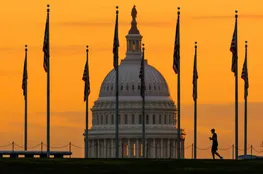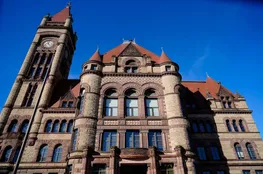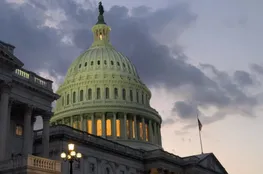The California Air Resources Board (CARB) remains uncertain about the potential impact of its upcoming vote on clean air rules on gas prices, despite Governor Gavin Newsom's office indicating that the vote will proceed. Recently, CARB Executive Steven Cliff expressed that he does not anticipate the rules will lead to higher gas costs for Californians. However, he acknowledged that the oil and gas industry would incur additional costs. This statement came during a CARB news conference, originally intended to announce a clean air initiative with the airline industry, which was ultimately overshadowed by discussions about the impending vote on the Low Carbon Fuel Standards scheduled for November 8.
Historically, CARB has recognized that such costs could be transferred to consumers. In fact, last year the board predicted possible gas price increases of up to 47 cents per gallon by 2025, although later they revised this estimate after proposing adjustments to the plan. Despite persistent inquiries about analyzing potential cost impacts, Cliff remarked last week that the board was not equipped to perform such an analysis. The Kleinman Center for Energy Policy’s estimates suggest an increase of 65 cents per gallon by 2025 under the new standards. The timing of the vote, just days after the election, coincides with polling indicating economic concerns are paramount among California voters.
The state hosts 25.6 million gas-powered vehicles compared to a much smaller fleet of electric vehicles, highlighting the significance of gasoline to Californians. When asked if making gas prices prohibitively high to encourage electric vehicle adoption was a goal, CARB Chairwoman Liane Randolph did not directly answer. Instead, she emphasized the broader benefits of diversifying fuel options and reducing carbon emissions in transportation. Following this, board spokesperson Lys Mendez unequivocally denied any intent to coerce a shift to electric vehicles.
Meanwhile, the regulatory climate is tightening, as seen by Phillips 66’s decision to close its refinery in Los Angeles amid new legislation permitting the state to alter refinery storage and maintenance rules. Valero’s chief executive noted regulatory pressures that affect refinery viability and the possible repercussions for energy costs. In light of these developments, Republican Assembly members Gallagher and Patterson penned a letter to Governor Newsom, requesting a pause on the vote and a reevaluation of the effects on fuel consumers, citing California's intricate regulatory web as a threat to refinery survival and potential spur for increased reliance on imported gasoline.
Governor Newsom's spokesman, Alex Stack, countered these concerns by asserting that the proposed policies are intended to shield Californians from excessive fuel costs and enhance air quality, while criticizing opposition as favoring oil industry profits over consumer and environmental welfare.
























